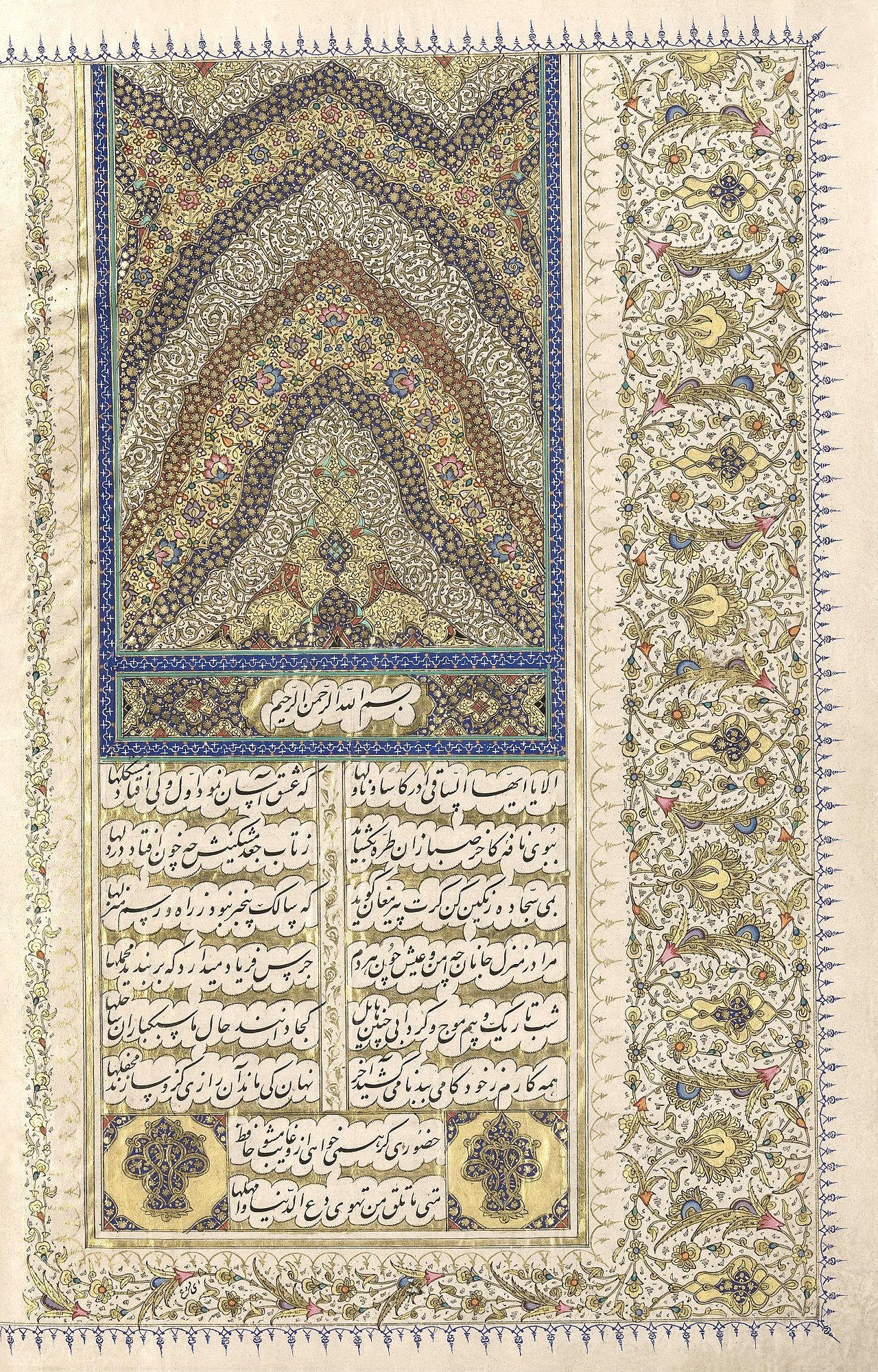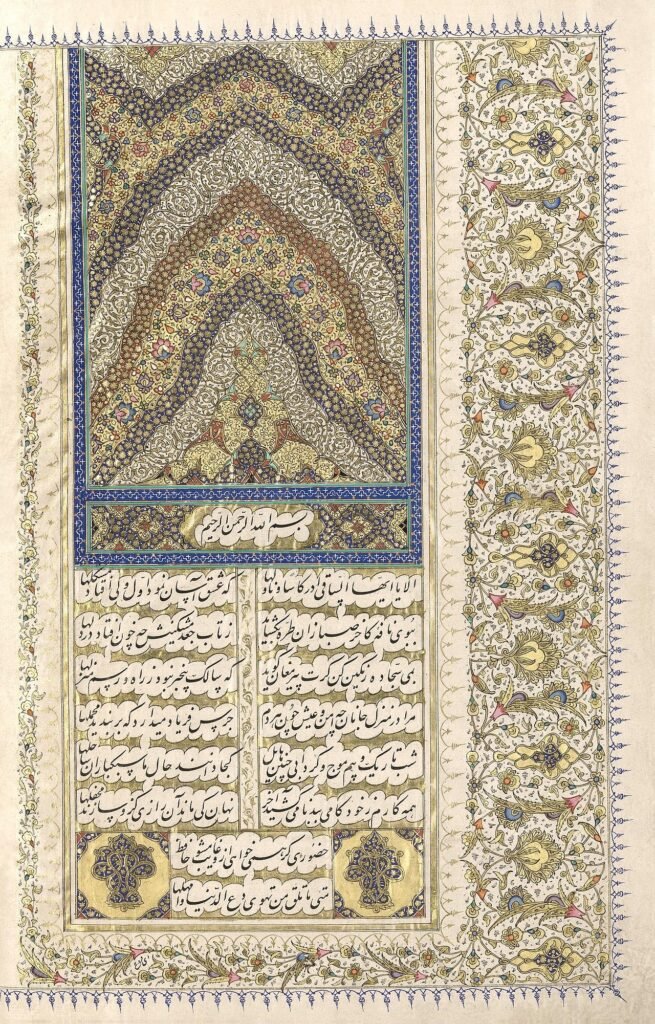Exploring the Works of the Celebrated Persian Poet
Hafez Shirazi, widely known simply as Hafez, is one of the most celebrated Persian poets of all time. Born in Shiraz, Iran in the 14th century, Hafez has left an indelible mark on Persian literature and has influenced poets and readers around the world. His works, filled with deep spiritual insights and rich symbolism, continue to captivate and inspire generations.

Biography of the Celebrated Persian Poet
Hafez Shirazi’s exact birthdate is a topic of debate among scholars, but it is believed to be around the year 1315. Very little is known about his personal life, and most of his biography is derived from anecdotes and legends. Hafez lived during a turbulent period in Persian history, witnessing the collapse of the Ilkhanate and the rise of the Timurid Empire. Despite these challenges, he managed to become one of the most revered poets of his time.
EARLY LIFE
Hafez Shirazi was born into a middle-class family in Shiraz. As a young child, he showed great interest in literature and poetry. He received his early education from renowned scholars, studying the Quran, Arabic grammar, and Persian literature. Hafez also had a passion for music, which is evident in the melodic quality of his poetry. His deep understanding of classical Persian poetry and his ability to express complex emotions through his verses set him apart from his contemporaries.
Hafez Shirazi’s Poetry: Themes and Influences
Hafez Shirazi’s poetry explores various themes, including love, spirituality, and the transient nature of life. His verses are steeped in Sufi mysticism and often carry a profound sense of longing and desire for union with the divine. Love, both earthly and divine, is a recurring motif in his works, symbolizing the quest for spiritual enlightenment. Hafez’s poetry also reflects the influence of Persian philosophy, particularly the concept of “Wine and Tavern,” where wine represents spiritual intoxication and the tavern symbolizes the divine gathering place.
The Divan of Hafez Shirazi: A Collection of Poems
The Divan of Hafez Shirazi is a collection of his poetry that has become one of the most beloved and revered works in Persian literature. It consists of approximately 500 ghazals, a form of Persian poetry characterized by rhyming couplets and a refrain. The Divan showcases Hafez’s mastery of language and his ability to convey deep emotions and spiritual insights through his lyrical verses. It is often considered a guidebook for lovers of Persian poetry and a gateway to the world of Sufi mysticism.
Symbolism and Imagery in Hafez Shirazi’s Poetry
One of the distinguishing features of Hafez Shirazi’s poetry is his effective use of symbolism and imagery. He often employs metaphors and allegories to convey deeper meanings. Wine, nightingales, roses, and the beloved figure are some of the recurring symbols in his poetry. Wine represents spiritual intoxication and divine love, while nightingales and roses symbolize the lover and the beloved. Hafez’s vivid imagery not only adds beauty to his verses but also enhances the reader’s understanding of the underlying spiritual themes.
Hafez Shirazi’s Impact on Persian Literature
Hafez Shirazi’s impact on Persian literature cannot be overstated. His poetry not only elevated the standards of Persian poetry but also influenced generations of poets and scholars. His mystical and philosophical themes, combined with his poetic brilliance, set a new standard that poets aspired to achieve. Hafez’s works continue to be studied and celebrated in Persian literature courses, and his influence can be seen in the works of Persian poets to this day.
Popularity and Legacy of Hafez Shirazi’s Works
Hafez Shirazi’s popularity has only grown over the centuries. His poetry is widely read and cherished by Iranians and individuals around the world who appreciate the beauty of Persian literature. In Iran, it is a tradition to consult the Divan of Hafez for guidance and seek answers to life’s questions through the practice of “fal-e Hafez,” where individuals randomly open the Divan and interpret the poem they come across as a divination tool. Hafez’s tomb in Shiraz has become a popular pilgrimage site, attracting visitors from all over the world.
Hafez Shirazi’s Influence on Western Poetry
Hafez Shirazi’s influence extends beyond Persian literature and has also left a profound impact on Western poetry. His works were introduced to the West during the 18th and 19th centuries, sparking a fascination with Persian poetry and Sufi mysticism. Renowned Western poets such as Goethe, Emerson, and Ralph Waldo Emerson drew inspiration from Hafez’s verses and incorporated elements of his style and themes into their own works. Hafez’s ability to transcend cultural boundaries and resonate with readers from different backgrounds speaks to the universal appeal of his poetry.
Translations of Hafez Shirazi’s Poetry: Challenges and Successes
Translating Hafez Shirazi’s poetry presents a significant challenge due to the complexities of the Persian language and the nuanced meanings embedded in his verses. Many translators have attempted to capture the essence of Hafez’s poetry in different languages, but it remains a daunting task. However, some translations have managed to convey the beauty and spirit of Hafez’s works, allowing non-Persian speakers to experience his poetry and appreciate its profound messages.
Hafez Shirazi’s poetry has received widespread acclaim from critics and scholars throughout history. His mastery of language, profound insights, and ability to evoke deep emotions have been praised by literary experts. His works have been studied and analyzed extensively, leading to numerous interpretations and critical essays. Hafez’s influence on Persian literature and his contribution to the development of Sufi poetry have solidified his position as one of the greatest poets of all time.
Hafez Shirazi is widely celebrated in Iran and beyond through festivals and commemorations. In Iran, his birthday is commemorated as a national holiday, known as “Hafez Day.” On this day, people gather at his tomb in Shiraz to recite his poetry, pay homage to his legacy, and celebrate his contribution to Persian culture. Additionally, various cultural events, poetry readings, and music performances are organized to honor Hafez and keep his spirit alive. His poetry continues to be a source of inspiration and joy for people around the world.
Hafez Shirazi’s poetry remains timeless and continues to touch the hearts and minds of readers across generations. His profound insights into spirituality, love, and the human condition have made him an enduring figure in Persian literature. The beauty of his verses, the depth of his words, and the universality of his themes have earned him a place among the greatest poets in history. Hafez’s works are a testament to the power of poetry to inspire, uplift, and unite people from different cultures and backgrounds.


